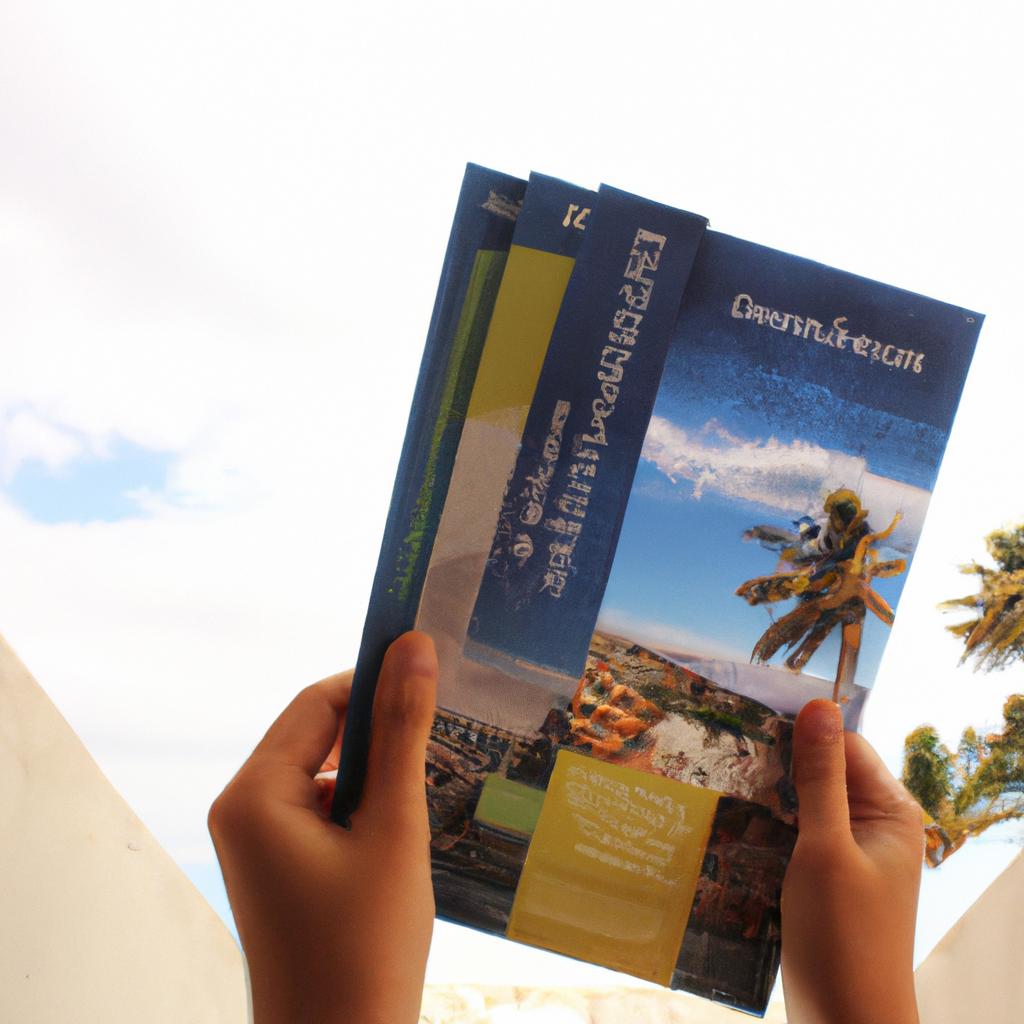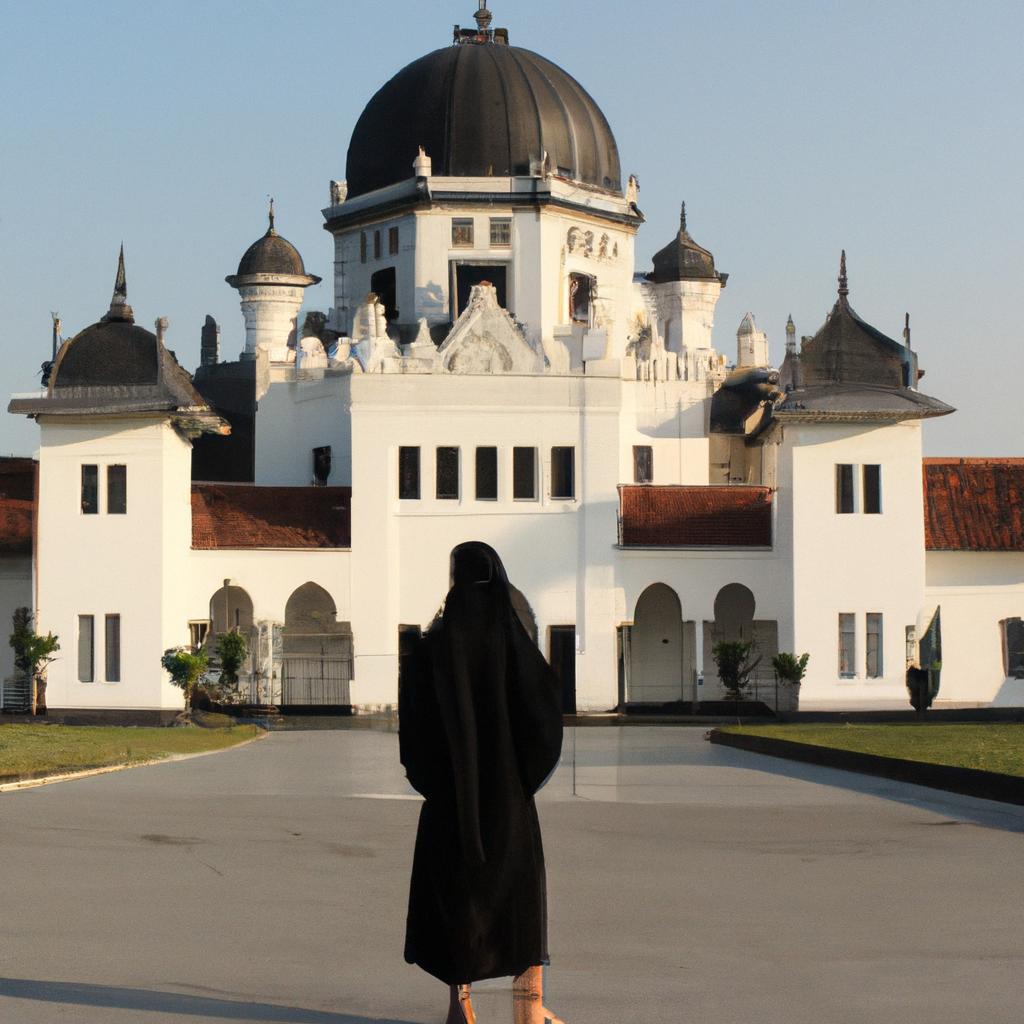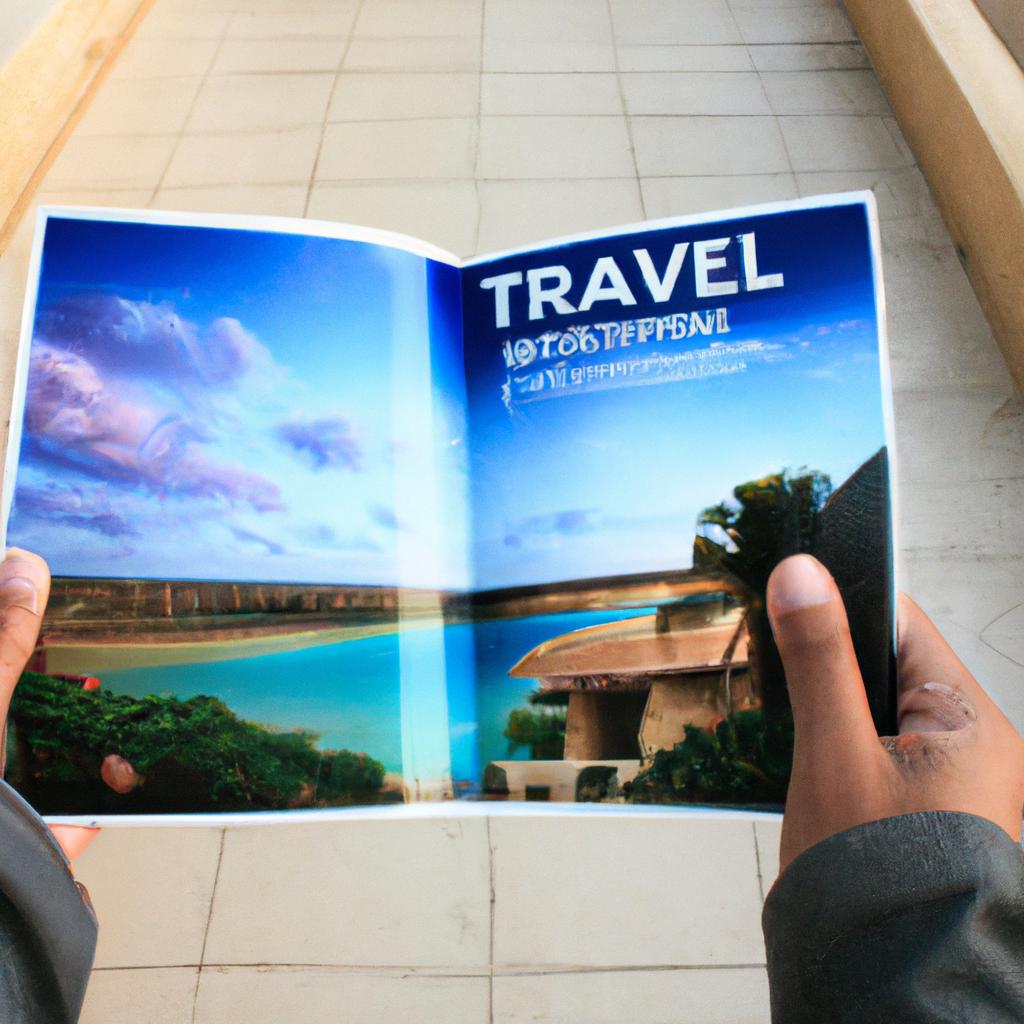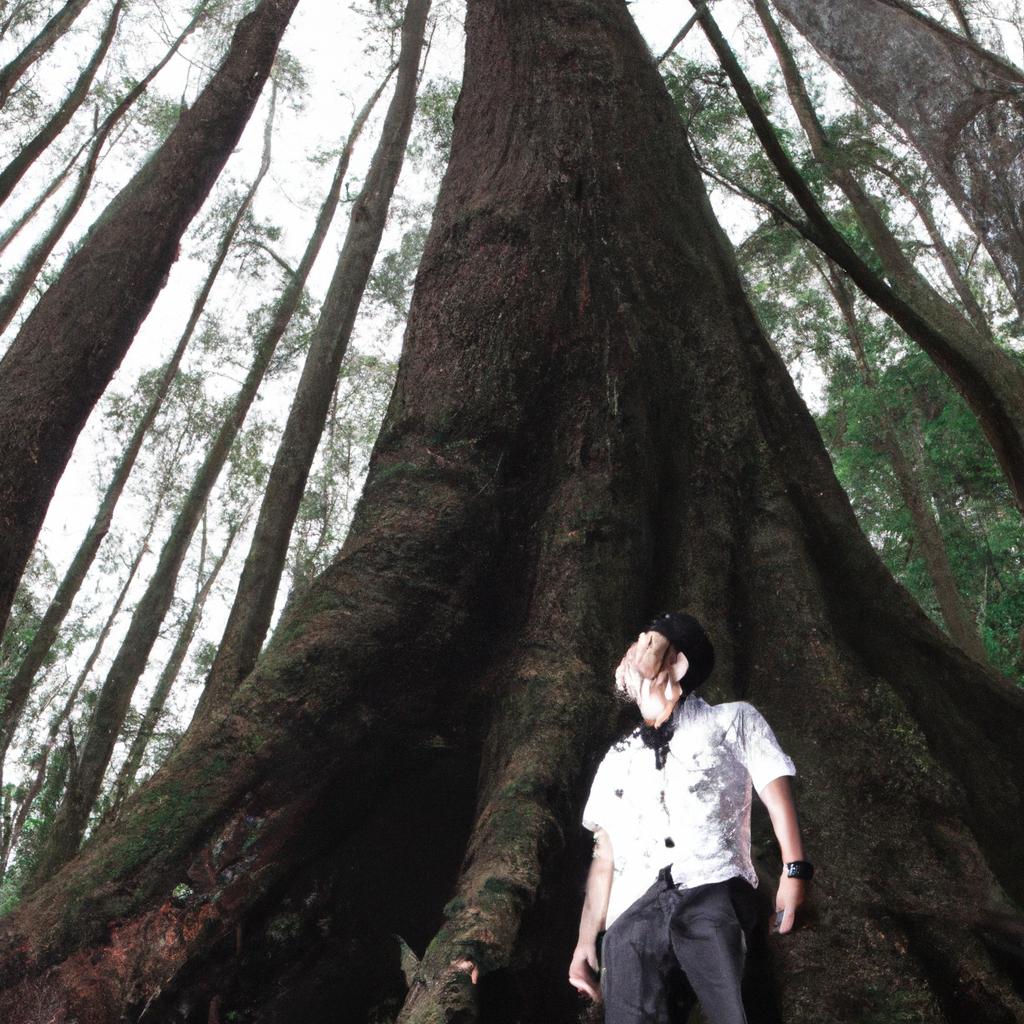Many individuals aspire to travel the world and explore new destinations, but often face financial constraints that hinder their dreams. However, with careful planning and effective budgeting techniques, it is possible to fulfill one’s desire for recreational travel without breaking the bank. This article aims to provide valuable insights into efficient travel financing strategies, enabling travelers to make the most of their experiences while keeping expenses in check.
Imagine a young couple who have always dreamed of backpacking through Europe. They are filled with excitement at the prospect of immersing themselves in different cultures and creating unforgettable memories. However, they soon realize that their limited savings may not be sufficient to cover all the expenses associated with such an adventure. It is situations like these where proper budgeting becomes crucial. By employing practical tips and tricks outlined in this article, individuals can maximize their travel funds and ensure a more affordable yet enjoyable journey.
Travel financing encompasses various aspects such as transportation costs, accommodation expenses, food expenditures, sightseeing activities, and unforeseen emergencies. In order to address these financial challenges effectively, it is essential to adopt systematic approaches towards managing one’s resources wisely. From researching alternative means of transportation and utilizing cost-effective accommodations options to implementing smart spending habits during the trip itself – every aspect plays a vital role in ensuring a successful and budget-friendly travel experience.
One of the primary considerations when it comes to travel financing is transportation costs. Airfare can often be one of the most significant expenses, but there are ways to minimize this burden. Travelers should keep an eye out for airline promotions, sign up for fare alerts, and consider flying during off-peak seasons or on weekdays when prices tend to be lower. Additionally, exploring alternative modes of transportation such as trains or buses within the region can offer more affordable options for getting around.
Accommodation expenses also contribute significantly to overall travel costs. While luxury hotels may seem tempting, opting for budget-friendly accommodations like hostels, guesthouses, or even vacation rentals can save a substantial amount of money. Websites and apps that specialize in finding discounted accommodations can be extremely helpful in securing affordable yet comfortable places to stay.
Food expenditures can quickly add up during a trip if not managed carefully. Instead of dining out at expensive restaurants for every meal, travelers should explore local markets and street food stalls where they can sample authentic cuisine at more reasonable prices. Packing snacks or light meals for long journeys or day trips can also help cut down on unnecessary expenses.
Sightseeing activities play a crucial role in any travel experience, but they don’t have to break the bank. Many cities offer free walking tours or discounted entry fees on certain days of the week for popular attractions. Researching these opportunities beforehand and prioritizing must-see sights will allow travelers to make the most of their time while staying within their budget.
Lastly, unforeseen emergencies are an inevitable part of any journey. It is essential to set aside a contingency fund specifically designated for unexpected expenses like medical emergencies or lost belongings. This way, travelers can have peace of mind knowing that they are financially prepared for any unfortunate situations that may arise.
By employing these practical budgeting techniques and being mindful of expenses throughout their travels, individuals can fulfill their wanderlust without compromising their financial stability. With careful planning, research, and smart decision-making, the dream of exploring new destinations can become a reality for anyone, regardless of their budgetary constraints.
Plan your trips in advance
When it comes to budget travel, planning your trips well in advance is a crucial step. By doing so, you not only ensure that you have ample time to research and find the best deals but also increase your chances of securing lower prices on flights, accommodations, and activities. Let’s consider an example: imagine you want to take a trip to Paris during the summer. If you start planning months ahead, you can take advantage of early bird promotions and discounts offered by airlines or hotels. On the other hand, if you wait until the last minute, prices may skyrocket due to high demand.
To make the most out of planning in advance for budget travel, here are some key strategies:
- Flexibility: Being flexible with your travel dates can save you a significant amount of money. Consider traveling during off-peak seasons when prices tend to be lower.
- Comparison shopping: Take advantage of online platforms and tools that allow you to compare prices across multiple websites simultaneously. This way, you can easily identify the best deals available.
- Travel packages: Look for bundled deals that include flights, accommodations, and sometimes even meals or transportation within your destination. These packages often offer discounted rates compared to booking each component separately.
- Rewards programs: Join loyalty programs offered by airlines or hotel chains. Accumulating points through these programs can help offset costs or provide additional benefits such as upgrades or access to exclusive offers.
Incorporating emotional appeal into this section will further engage readers who are seeking ways to make their recreational travels more affordable without compromising quality experiences.
| Benefit | Description | Example |
|---|---|---|
| Cost savings | Planning in advance allows travelers to secure better deals and avoid paying exorbitant prices closer to their departure date. | Booking a flight six months ahead saved John $300 on his round-trip ticket from New York City to Bangkok. |
| Peace of mind | Knowing that your travel arrangements are taken care of well in advance can alleviate stress and allow you to focus on enjoying your trip. | Sarah booked her accommodations and activities for her European vacation four months ahead, which gave her peace of mind throughout the planning process. |
| More options | Planning early gives travelers a wider range of choices when it comes to flights, accommodations, and activities, as availability tends to decrease closer to the desired date. | By booking his safari tour in South Africa eight months before his departure, Mark had access to more lodges and excursion options than if he had waited until later. |
By following these tips and being proactive in planning your trips, not only can you save money but also have a greater sense of control over your travel experience. In the subsequent section about “Set a realistic budget,” we will explore another essential aspect of efficient travel financing techniques.
Set a realistic budget
As we have discussed the importance of planning your trips in advance, let us now move on to the next crucial step in budget travel – setting a realistic budget. By understanding how much you can afford to spend and making sure it aligns with your travel goals, you can ensure that your finances are well-managed throughout your journey.
Setting a realistic budget is essential as it allows you to make informed decisions about where and how you allocate your funds during your trip. To illustrate this point, consider a hypothetical example of Sarah, an avid traveler who wants to explore Europe for two weeks. Before her trip, she takes into account factors such as transportation costs, accommodation expenses, meals, activities, and any additional fees or unexpected expenses that may arise. By doing so, Sarah can estimate the overall cost of her journey and set a budget accordingly.
To further help you effectively manage your travel finances, here are some practical tips:
- Keep track of your expenses: Maintain a detailed record of all expenditures during your trip. This will allow you to identify areas where you might be overspending and adjust accordingly.
- Prioritize experiences over material possessions: Focus on creating memorable experiences rather than purchasing souvenirs or unnecessary items. Memories last longer than material possessions.
- Embrace local cuisine: Instead of dining at expensive tourist-oriented restaurants, seek out local eateries where you can savor authentic flavors while saving money.
- Utilize public transportation whenever possible: Opting for public transport not only helps reduce costs but also provides an opportunity to immerse yourself in the local culture.
| Expenses | Estimated Cost |
|---|---|
| Transportation | $500 |
| Accommodation | $800 |
| Food | $400 |
| Activities | $300 |
By following these strategies and paying close attention to how you allocate your resources, you can maximize enjoyment while minimizing financial strain during your travels.
Now that we have discussed the importance of setting a realistic budget for your trip, let us delve into another crucial aspect of budget travel – looking for affordable accommodation options.
Look for affordable accommodation options
With a realistic budget in place, the next step is to find affordable accommodation options that can help you save money during your travels.
Section 2: Look for Affordable Accommodation Options
When it comes to finding accommodation on a budget, there are several strategies you can employ. One effective approach is to consider staying in hostels or guesthouses instead of traditional hotels. For example, let’s say you’re planning a trip to Paris and want to stay near popular tourist attractions. By opting for a hostel located in the city center, such as Le Village Hostel Montmartre, you can enjoy comfortable accommodations at a fraction of the cost compared to nearby hotels.
To further assist you in your search for affordable accommodation options, here are some useful tips:
- Utilize online booking platforms like Booking.com or Airbnb which offer a wide range of lodging choices at various price points.
- Consider shared accommodations where you rent a room instead of an entire apartment or house, allowing you to split costs with fellow travelers.
- Be flexible with your travel dates – staying during off-peak seasons or weekdays often results in lower rates.
- Take advantage of loyalty programs offered by hotel chains or booking websites that reward frequent customers with discounts or free stays.
To provide a visual representation of these ideas, here’s a table showcasing different types of accommodation options and their average nightly rates:
| Type of Accommodation | Average Nightly Rate |
|---|---|
| Hostel | $20 – $50 |
| Guesthouse | $30 – $80 |
| Budget Hotel | $40 – $100 |
By considering these alternatives and utilizing online resources wisely, you can significantly reduce your accommodation expenses while still enjoying comfortable and convenient places to stay throughout your journey.
As you move forward in planning your budget-friendly adventure, another crucial aspect worth exploring is how public transportation can be leveraged to save money on travel costs.
Utilize public transportation
In our pursuit of affordable travel, finding cost-effective accommodation options is just one piece of the puzzle. Another crucial aspect to consider when budgeting for your recreational travels is transportation. By utilizing public transportation systems, travelers can significantly reduce their expenses while enjoying convenient and efficient means of getting around.
Case Study:
Imagine you are traveling to a vibrant city like London. Instead of relying solely on taxis or rental cars, which can be expensive and add up quickly, choosing to use the extensive underground subway system (known as the Tube) in combination with buses could save you a significant amount of money during your trip.
Benefits of Public Transportation:
Here are several reasons why opting for public transportation can be advantageous for both your wallet and overall travel experience:
- Cost savings: Using public transport, such as buses, trains, trams, or subways, often proves more economical than other modes of transport. With reduced fares compared to private vehicles or taxis, you’ll have more funds available for other aspects of your journey.
- Environmental impact: Public transportation helps reduce carbon emissions by accommodating multiple passengers simultaneously instead of individual vehicles. By choosing this option, you contribute positively towards sustainable tourism practices.
- Local immersion: When using public transportation, you get an opportunity to mingle with locals and experience their daily routines firsthand. This interaction adds authenticity to your trip and allows you to discover hidden gems that might not be found in guidebooks.
- Convenience and accessibility: Many cities offer comprehensive public transit networks that cover vast areas within urban regions. These systems are designed to provide easy access to popular landmarks, tourist attractions, shopping districts, and entertainment venues.
Consider these advantages when deciding whether to utilize public transportation during your travels:
- Save money without compromising convenience
- Reduce your environmental footprint
- Immerse yourself in local culture
- Enjoy hassle-free accessibility to various attractions
Emotional Table:
| Benefits of Public Transportation |
|---|
| Cost savings |
| Environmental impact |
| Local immersion |
| Convenience and accessibility |
cooking your own meals. By taking control of your culinary experiences, you can not only reduce expenses but also add a personal touch to your journey.
Cook your own meals
One effective way to save money while traveling is by cooking your own meals. By doing so, you not only have control over what ingredients you use but also ensure that your dietary preferences and restrictions are met. Let’s take a look at how this can be achieved.
For example, imagine you’re planning a trip to Paris, known for its exquisite cuisine. Instead of dining out for every meal, consider renting an apartment or staying in accommodations with kitchen facilities. This will allow you to prepare some of your meals using local produce and ingredients from nearby markets. Not only will this give you the opportunity to experience the culinary culture firsthand, but it will also significantly reduce your food expenses.
To make cooking your own meals more convenient during your travels, here are some tips:
- Plan ahead: Research local grocery stores or markets near your accommodation before arriving at your destination.
- Pack essential utensils: Consider bringing lightweight cookware such as a portable stove, pots, pans, and utensils that are suitable for travel.
- Opt for simple recipes: Look for easy-to-make recipes that require minimal ingredients and preparation time.
- Utilize leftovers creatively: Transform leftover ingredients into new dishes to avoid wastage and maximize resources.
By following these suggestions and incorporating cooking into your travel routine, not only can you save money on food expenses but also create memorable experiences through exploring local cuisines.
| Pro Tip | Savoring Homemade Delights |
|---|---|
| When preparing meals on your travels, don’t forget to savor each bite! Take the time to appreciate the flavors and enjoy the process of creating something delicious. It’s not just about saving money; it’s about immersing yourself in the cultural richness of each destination through its food. |
In conclusion, cooking your own meals while traveling can offer numerous benefits beyond financial savings. It allows you to customize your meals, explore local markets, and experience the joy of preparing dishes in a new environment. By planning ahead and utilizing the resources available, you can make cooking an integral part of your budget travel experience.
Now, let’s move on to the next section: “Take advantage of free or discounted activities”
Take advantage of free or discounted activities
Building on the idea of saving money through self-sufficient dining, another effective way to stretch your travel budget is by taking advantage of free or discounted activities. By incorporating these activities into your itinerary, you can experience the local culture and attractions without breaking the bank.
One example of a city that offers an array of cost-effective options for leisurely exploration is Barcelona, Spain. Imagine strolling along Las Ramblas, one of the most vibrant streets in Europe, lined with street performers and lively cafes. Here are some tips to help you make the most of your recreational pursuits while keeping costs down:
- Seek out free walking tours: Many cities offer guided walking tours that provide insights into their history and landmarks at no cost. These tours often operate on a tip-based system, allowing visitors to contribute what they feel is appropriate based on their satisfaction.
- Visit public parks and gardens: Most cities have beautiful public parks and gardens where you can relax, enjoy nature’s beauty, and even have a picnic. These serene spaces not only allow for peaceful moments but also give you a chance to recharge before continuing your explorations.
- Take advantage of cultural festivals: Research ahead of time to see if there are any cultural festivals happening during your visit. Attending these events allows you to immerse yourself in local traditions and celebrations without spending extra money.
- Utilize tourist passes or discount cards: Many destinations offer city-specific tourist passes or discount cards that grant access to multiple attractions at reduced prices. These passes often include benefits such as skip-the-line privileges or discounts on transportation services.
To further illustrate how engaging in free or discounted activities can enhance your travel experience while being mindful of expenses, consider this table showcasing various popular European cities and their corresponding low-cost recreation options:
| City | Free Walking Tours | Public Parks/Gardens | Cultural Festivals |
|---|---|---|---|
| London | Strawberry Tours, Free London Walks | Hyde Park | Notting Hill Carnival |
| Paris | Sandemans New Europe | Luxembourg Gardens | Fête de la Musique (Music Festival) |
| Rome | Rome Free Walking Tour | Villa Borghese Gardens | Carnevale di Roma (Carnival of Rome) |
| Amsterdam | FREEDam Tours | Vondelpark | Kingsday Celebrations |
Incorporating these activities into your travel plans not only allows you to save money but also provides unique opportunities to immerse yourself in the local culture and create lasting memories. By making conscious choices about how you spend your leisure time, you can ensure a fulfilling and financially responsible travel experience.
Remember, exploring cost-effective recreational options is just one aspect of budget travel.











